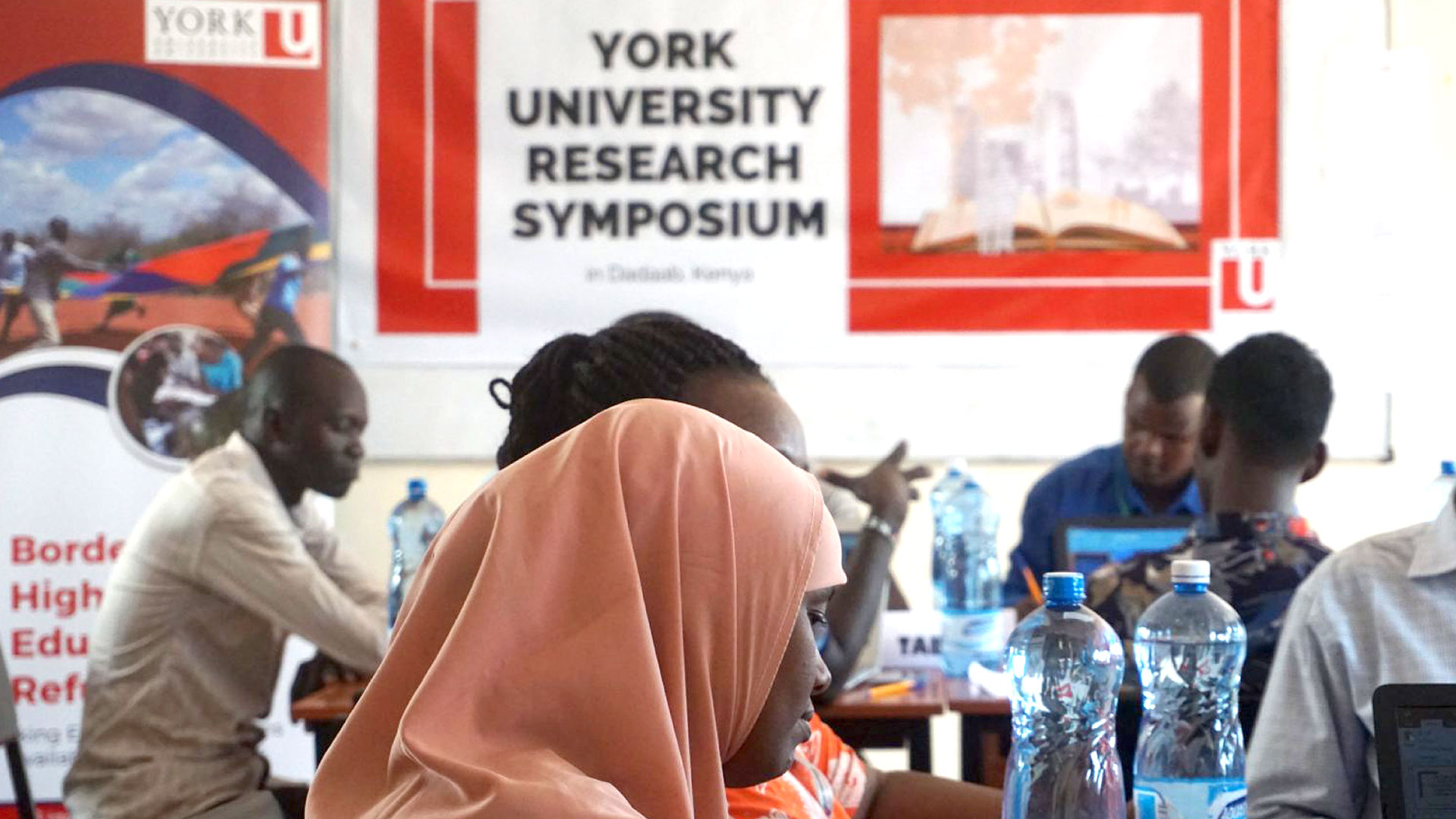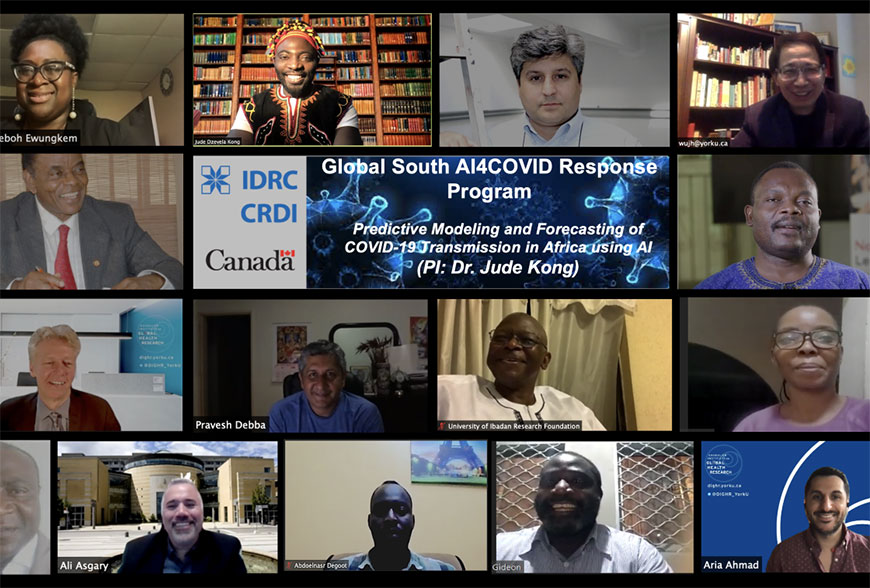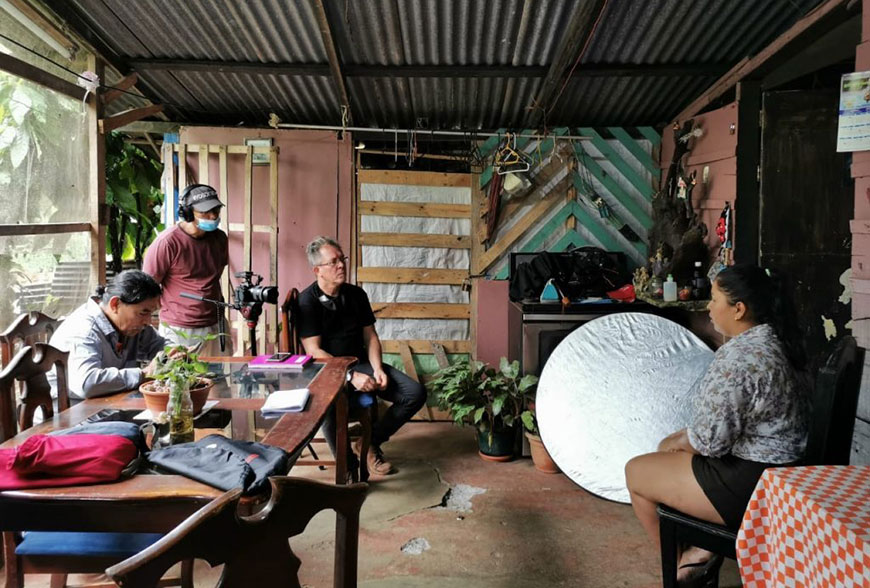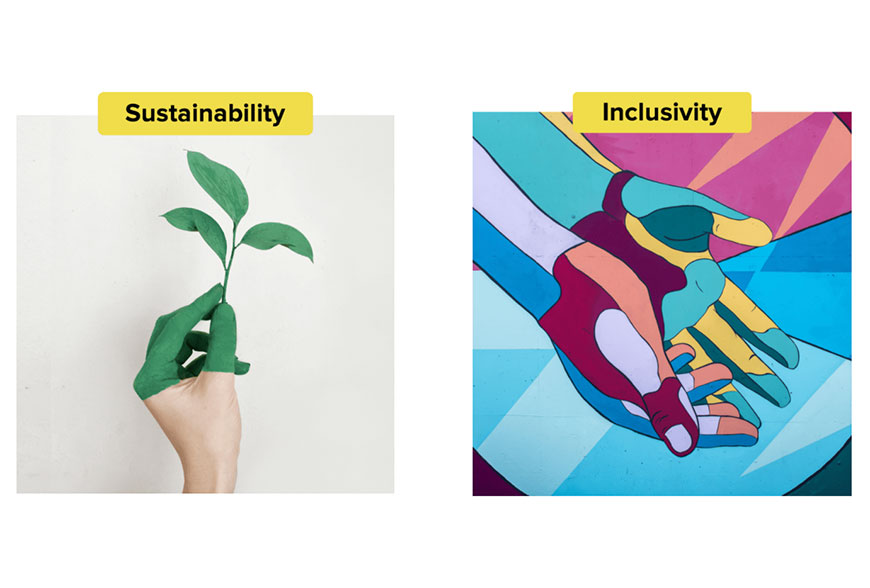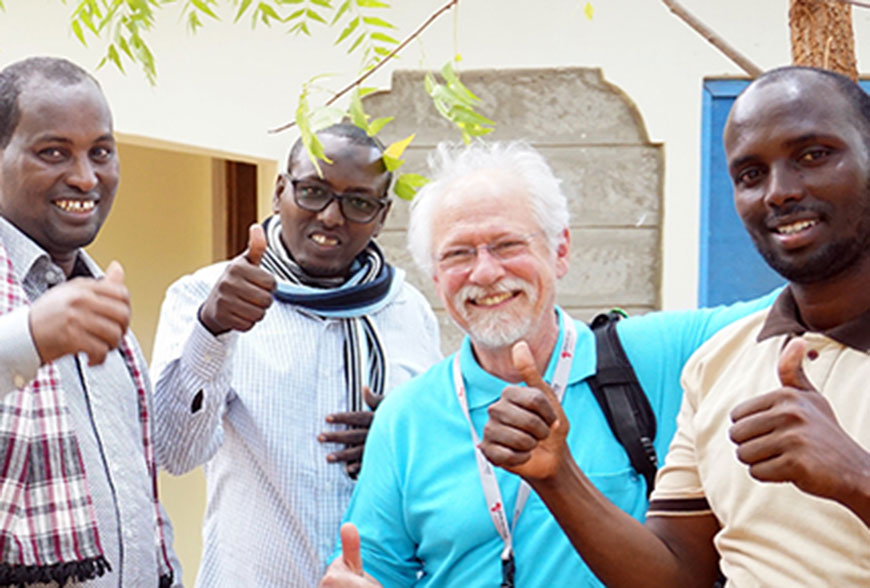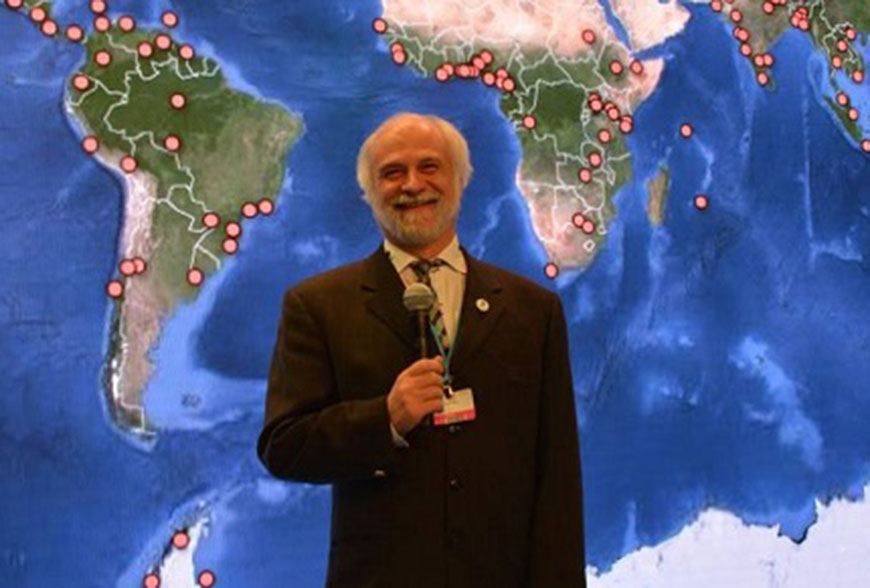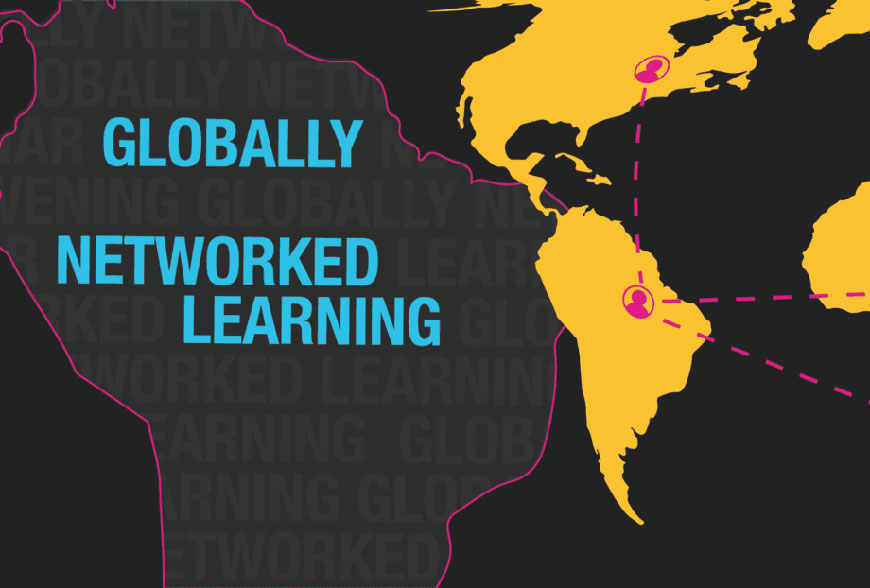As an internationally engaged university with students from around the world, a bilingual campus at Glendon, and campuses in Costa Rica and India, York is invested in building new partnerships that bring us together, embracing new and emerging technologies that enable intellectual exchange, testing new modalities that enhance student learning, engaging new populations in the collective pursuit of knowledge, and driving positive change, both locally and globally.
Over the past year, York has advanced its global engagement by enhancing international exchange, summer program, internship, and academic program offerings; expanding its international student population; participating in innovative research partnerships and collaborative projects with partners around the world; and strengthening alumni networks.
351
active international partnership agreements
2,674
publications co-authored internationally
5%
increase in international student population over the past three years
1,929
students in bilingual programs
In December 2020, York researchers partnered with organizations across Africa to launch a project to predict the spread of the COVID-19 pandemic and provide modelling that will help national policymakers from across Africa manage the virus in real time.
Jude Kong, Assistant Professor of Mathematics and Statistics and a member of the National COVID-19 Modelling Rapid Response Task Force, is leading the interdisciplinary team of more than 50 researchers in nine African countries and Canada, who are helping to provide health authorities and policymakers across Africa with the practical tools they need to suppress subsequent waves of infections or mitigate their impact.
In conjunction with the project, the Africa–Canada Artificial Intelligence and Public Health Data Modelling Consortium was established, co-chaired by York Professor Jianhong Wu and Professor Bruce Mellado of University of the Witwatersrand, South Africa.
Throughout the 2020–21 academic year, York continued to develop and implement strategic plans for its Las Nubes Project in Costa Rica. The project contributes to community well-being and fosters environmental conservation through faculty and student research, experiential education, and community engagement initiatives.
The Las Nubes EcoCampus runs a semester abroad program for York students, as well as an education and learning resource centre for Las Nubes community members, supported by York Libraries.
In June 2021, the Las Nubes Project released More than Migrants, the first in a series of documentary films that examines the lives of people in Costa Rica. The film was directed by the Director of the Las Nubes Project, Phillip J. Montoya. Assistant Professor of Health Mathieu Poirier acted as Academic Lead on the film.
A team of York researchers are examining how restrictions like social distancing and closure of schools affect African immigrants in Canada and how those effects are influenced by gender.
In May 2020, York awarded a $23,224 COVID research grant to Gertrude Mianda, Professor of Gender, Feminist and Women’s Studies, Faculty of Graduate Studies and the Harriet Tubman Institute, and Elaine Coburn, Professor of International Studies and the Centre for Feminist Research, Glendon. Professors Mianda and Coburn are co-leading a team examining how gender influences the challenges that measures such as social distancing, school closures, and travel restrictions pose to African immigrant men and women, and how policies and practices could be changed to better support them.
In January 2021, York University hosted the Sustainable and Inclusive Internationalization Virtual Conference, co-organized by York International, the UNESCO Chair in Reorienting Education Towards Sustainability, and several international partners.
The conference brought scholars, policy makers, sustainability experts, international mobility professionals and practitioners, and other stakeholders together to discuss the evolving status of international mobility in higher education in Canada and globally, and to collectively build a future vision of international mobility that is inclusive, innovative, and responsive to the global sustainability challenges of our times.
In June 2020, York awarded masters degrees to a cohort of refugees in Dadaab, Kenya, as part of the Borderless Higher Education for Refugees Project.
The project, which is led by a consortium of Canadian and Kenyan universities and NGOs, aims to improve the delivery of quality education in refugee camps in Dadaab and adjacent local communities; enhance employability; and contribute to conditions for justice, sustainability, and peace in the region through the provision of equitable, inclusive, gender-sensitive, and culturally responsive university programs.
In February 2021, York Research Fellow Mark Terry won a United Nations’ Sustainable Development Goal Action Award for the Youth Climate Report, a documentary film project that features 525 young people around the world reporting on climate change in their communities.
The “geo-doc” is a format developed by Terry that shows icons distributed over a map of the world, each linking to a miniature documentary created by a participant.
In the absence of international travel due to restrictions surrounding the pandemic, York found innovative ways to continue to provide students with a variety of international learning experiences, including through its Globally Networked Learning program, which enables students, faculty, and non-academic researchers from around the world to participate in, and collaborate on, knowledge-making processes and concrete research projects.
This year, students participated in Globally Networked Learning projects that incorporated joint lectures, collaborative research, student dialogues, presentations, and competitions, ranging in topic from international refugee protection, to microeconomics, to global health policy, to teaching English as a second language.
For example, as part of his Communication, Health, and Environment course, Glendon Course Director Charles-Antoine Rouyer partnered with universities in Quito, Ecuador, and Lille, France, to provide students with the opportunity to participate in Hemispheric Student Dialogues on the United Nations Sustainable Development Goals, and collaborate with students from France to create a visual production illustrating some of the key concepts they studied.
